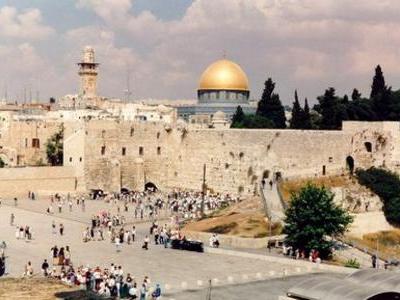Israel |
 |  Test everything What does the bible really say about Israel? |  The history of Israel Read about the history of israel and the land God proimised them |
A general overview In modern history, Israel was re-born as a nation in 1948. Prior to that, Britain took control of the area known as Palestine following the defeat of the Ottoman Empire that ruled this part of the Middle East,in World War One. The land was inhabited by a Jewish minority and Arab majority, as well as other, smaller ethnic groups. The International community gave the UK the task of establishing a “national home” in Palestine for Jewish people. To Jews Palestine was their ancestral home, but Palestinian Arabs also claimed the land and opposed the move. Between the 1920s and 1940s, the number of Jews arriving there grew, with many fleeing from persecution in Europe, especially the Nazi Holocaust in World War Two. Violence between Jews and Arabs and against British rule also increased. In 1947, the UN voted for Palestine to be split into separate Jewish and Arab states, with Jerusalem becoming an international city. That plan was accepted by Jewish leaders but rejected by the Arab side and never implemented. In 1948, unable to solve the problem, Britain withdrew and Jewish leaders declared the creation of the State of Israel.It was intended to be a safe haven for Jews fleeing persecution, as well as a national homeland for Jews.Fighting between Jewish and Arab militias had been intensifying for months, and the day after Israel declared statehood, five Arab countries attacked. Palestinians fled or were forced out of their homes in what they call Al Nakba, or "the catastrophe". By the time the fighting ended in a ceasefire the following year, Israel controlled most of the territory. In a war in 1967, Israel occupied East Jerusalem and the West Bank, as well as most of the Syrian Golan Heights, Gaza and the Egyptian Sinai peninsula. What is the Gaza Strip? Gaza is a narrow strip of land sandwiched between Israel and the Mediterranean Sea, but with a short southern border with Egypt. Just 41km (25 miles) long and 10km wide, it has more than two million inhabitants and is one of the most densely populated places on Earth. In the wake of the 1948-49 war, Gaza was occupied by Egypt for 19 years. Israel occupied Gaza in the 1967 war and stayed until 2005, during that time building Jewish settlements. Israel withdrew its troops and settlers in 2005, though it retained control over its airspace, shared border and shoreline. Gaza is ruled by Hamas, an Islamist group which is committed to the destruction of Israel and is designated as a terrorist group by the UK and many other countries. Hamas won the Palestinians’ last elections in 2006 and seized control of Gaza the following year by ousting the rival Fatah movement of West Bank-based President Mahmoud Abbas. Since then, militants in Gaza have fought several wars with Israel, which along with Egypt has maintained a partial blockade on the strip to isolate Hamas and try to stop attacks, particularly the indiscriminate firing of rockets towards Israeli cities. Palestinians in Gaza say Israel’s restrictions and its air strikes on heavily populated areas amount to collective punishment. This year has been the deadliest year on record for Palestinians in the West Bank and East Jerusalem. They also complain of the restrictions and military actions being carried out there in response to deadly attacks on Israelis. The US, the European Union and other Western countries have all condemned the Hamas attack on Israel. The US, Israel’s closest ally, has over the years given the Jewish state more than $260bn in military and economic aid, and has promised additional equipment, air defence missiles, guided bombs and ammunition. It has also sent two aircraft carrier strike groups to the eastern Mediterranean to deter Israel’s enemies, particularly Lebanon’s Hezbollah movement, from opening a second front in the war. Russia and China have both refused to condemn Hamas, and say they are maintaining contact with both sides in the conflict. Russian President Vladimir Putin has blamed US policy for the absence of peace in the Middle East. Iran, Israel’s arch-enemy, is a key supporter of Hamas, as well as Hezbollah, whose militants have been exchanging fire with Israeli forces almost daily since Hamas’s attack. Questions have been asked about Iran’s role in the Hamas’ attack, after reports said it gave the go-ahead days before. Tehran has, however, denied any involvelement. Iran has however made no secret of wanting Israel totally exterminated. |
This page and associated pages are currently being re-written. We apologize for any inconvenience. Please bookmark us and return. |


